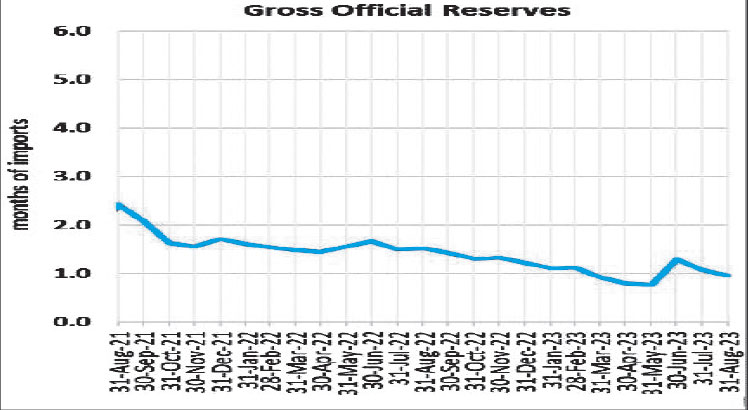Mixed views on RBM’s New forex measure
The Reserve Bank of Malawi (RBM) and some local exporters have differed on a new directive to stop holders of foreign currency denominated accounts (FCDAs) from dictating where they cash their foreign exchange.
The central bank says the move has the potential to clear market distortions while traders argue it could hurt their businesses.
In the Operational Manual for Cross-Border Foreign Exchange Transactions issued to Authorised Dealer Banks (ADBs), RBM deputy governor William Matambo said: “On conversion of the balances into Malawi kwacha, the FCDAs holder shall not attach any conditions to the conversion that have the effect of [a] directing the ADB to sell or allocate the forex arising from the conversion to a specific party; or [b] generally limiting the role of the ADB as a financial intermediary.”

The development comes after RBM last month also banned the sale of forex proceeds to forex bureaus and instructed them to deposit “the funds in their FCDAs or exchange the same with commercial banks”.
RBM spokesperson Mark Lungu in an interview yesterday said the new measure seeks to prevent FCDAs holders from directing commercial banks to sell or allocate forex to specific parties because such practices “distort the foreign exchange market by usurping the intermediation role of the ADBs”.
He said the new regulations are just correcting a market failure on the forex market.
Reacting to the development, LM Aquaculture managing director David Nkhwazi said the revision of the rules will hurt exporters, adding that they are already constrained by an RBM requirement to sell 70 percent of their forex proceeds to the government through ADBs.
He said the revision means they will have relatively less control over the 30 percent retained in their business accounts.
Nkhwazi, whose firm is one of the local exporters, said: “This will further hurt exporters as their suppliers of raw materials and packaging materials will not be prioritised since exporters have no say as to how the forex they generate is utilised.
“In a market where forex is scarce, exporters should be incentivised by prioritising their inputs to produce and export more.”
In a separate interview, Dzuwa Energy founder and managing director Jones Ntaukira, a trader of solar panels and other accessories, acknowledged that the new measure is restrictive, but added that it is more important to have forex in the country.
A weekly brief from Standard Bank plc published last week said the directive effectively bans “all pass-on or pass-through transactions where clients would advise ADBs to sell or allocate part of the foreign currency”.
It said allowing clients to advise ADBs where to sell or allocate part of their foreign exchange “escalated the forex challenges”.
In an earlier interview, Financial Market Dealers Association president Leslie Fatch urged the RBM to close gaps in the forex market to ensure the little forex the country generates finds its way to the formal forex market.
Figures from RBM show the economy is sitting on forex reserves estimated at $651.7 million or 2.6 months of import cover.






One Comment